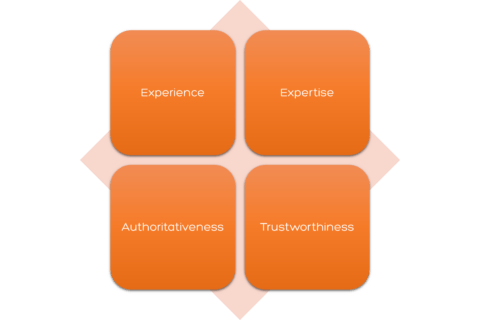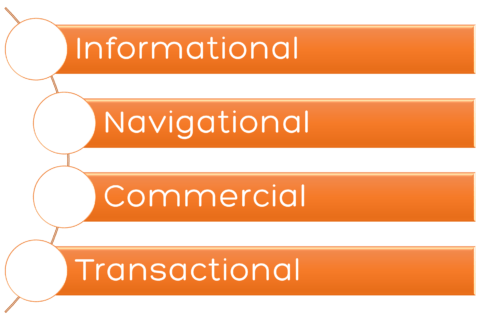When it comes to SEO we all know that there are a huge number of variables that go into ensuring that your website can rank as highly as possible in search engines. In fact, Google states that it uses 200 ranking factors in total to help it determine which results to serve for key terms!
On top of that, Google is continually introducing new algorithm updates, and recently that has been even more frequent than in previous years. The only thing that we do know about the future for sure is that Google will continue to adjust its ranking signals to best meet the needs of searchers.
All of this can make knowing exactly where to aim your SEO strategy and resources a seemingly impossible task if you don’t have your ear to the ground. With so many ranking factors and Google (at times) being a little cryptic about which has the biggest impact, it is easy for anyone that’s just starting out to focus too much attention on the wrong areas.
For this reason, we believe that reading industry news and training courses alone aren’t enough. Experience and studying real-world results are also crucial to properly understanding SEO and the significance of various ranking factors.
Given this, we decided to ask our SEO experts and a select panel of 18 industry-leading SEOs for their thoughts on what their experience reveals to be the most underrated SEO ranking factors in 2023.
Our panel of SEO experts for this article are:
- Andy Rich – SEO at Waitrose
- Jade Larkin – SEO and Content at LloydsPharmacy Online Doctor
- Laura Condrut – SEO Manager at Contiki
- Alex Entwistle – SEO Lead at Save My Exams
- Stacey Cavagnetto – Content & PR Lead at Koozai
- Nikita Odedra – SEO & Content Marketing Executive at The Telegraph
- Joel Burrell – SEO Lead at Bourne Leisure – Butlin’s
- Anastasia Letsos – SEO Manager at Kaizen Gaming
- Terry Lee – Digital Marketing and SEO Manager at Comms Express
- Sean Barber – SEO Manager at Macmillan Cancer Support
- Leigh Briars – SEO Manager at John Lewis (Financial Services)
- Hemanth Balaji – Head of SEO at Frasers Group
- Sam Pennington – Senior SEO Manager at New Look
- Sally Raymer – SEO Manager at heycar
- Gary Hainsworth – Senior Organic Data Specialist at Koozai
- Kayleigh Cleaver – Global SEO Manager at Burberry
- Syed Shehzad – Head of SEO at Spotlight Sports Group
- David Wilson – Head of PR & Content at Koozai
We received some very helpful advice from these highly regarded SEOs, which we are delighted to share with you here. So in no particular order, here are the top 12 most underrated ranking factors to look out for in 2023:
Technical Health

A technically sound website is crucial for SEO because it helps search engines understand and index a site’s content, provides a better user experience, and improves a site’s security and visibility in search results. Andy Rich SEO at Waitrose explains why it’s a key ranking factor that you can’t afford to overlook in 2023:
“I’d say with older and larger sites the technical health of your site is key, so we put a lot of emphasis on ensuring it can be crawled and your content is indexed as you intended and that pages aren’t cannibalising each other. This goes hand in hand with having content that is up to date and serving a purpose rather than just creating a bloated and messy experience for your visitors.”
Google Search Console

Google Search Console is an essential tool for anyone who wants to improve their site’s SEO. By using it to monitor your site’s performance, identify and fix errors, and optimise for mobile devices, you can increase your site’s visibility in search results and drive more traffic to your site.
Jade Larkin SEO and Content at LloydsPharmacy Online Doctor explains its importance:
“One of the most underrated ranking factors is using Google Search Console to inform content editing and creation. For example, use MoM data to see where impressions are significantly higher and make sure ranking content for these keywords is up to date. Also, where are you getting loads of impressions but a low CTR? Do you need to weave these terms and extra content into your copy to get a position boost?”
First-hand experience (E-E-A-T)

Having first-hand experience when writing content is super beneficial for SEO because it can help to establish credibility, provide valuable insights, differentiate your content, and demonstrate expertise and authority on a particular subject. In recent years, E-A-T has become increasingly important for website owners and content creators who want to rank well in search results. Last year Google updated it to E-E-A-T. This stands for Experience, Expertise, Authoritativeness, and Trustworthiness. E-E-A-T is now part of the updated search rater guidelines.
Many of the SEO leaders we approached identified E-E-A-T as a key factor to consider in 2023:
Laura Condrut SEO Manager at Contiki said “Unsurprisingly, the recent introduction of ChatGPT and BARD has created a lot of buzz in the digital marketing space, with many companies thinking of how they can scale their content production with the help of AI. However, a certain Google announcement from last year has mostly gone unnoticed: the December update to the quality rater guidelines.
In December 15th 2022, Google announced the update of E-A-T, which now has an extra E for experience. More value is being placed on content created by people with direct, first-hand experience on the subject matter that they’re writing about, which makes them more helpful and trustworthy to potential readers and helps them stand out from articles with no original insights.
If we contrast this with ChatGPT, I think this is going to be the single most underrated, but highly powerful element that’s truly going to make a difference in terms of SEO. More challenging? Yes. More rewarding? Absolutely.”
Alex Entwistle SEO Lead at Save My Exams explains its significance:
“In my opinion, one of the most underrated ‘ranking factors’ for 2023 will be E-E-A-T (Experience, Expertise, Authoritativeness & Trustworthiness). In theory, this isn’t a ‘direct’ ranking factor, it’s more of a framework by which Google evaluates the performance of its search ranking systems. This indirect nature, combined with the lack of a clear metric or score for E-E-A-T, can make it quite difficult for some organisations to prioritise. However, Google’s algorithm updates over the last few years (such as Helpful Content and Medic) show a clear trend in trying to maximise the usefulness and reliability of the results they offer users. If we can’t communicate what makes our content trustworthy, authoritative, etc… how can we expect Google to choose our content as the best answer to the user’s query?”
Stacey Cavagnetto Content & PR Lead at Koozai said “It’s easy to consider E-E-A-T as less important as it’s not a direct ranking factor, however, you can’t get around the fact that producing top-quality content isn’t really achievable without following these guidelines. We know that we should be keeping our customer at the forefront of our minds to effectively answer their search queries, but, like Google’s Helpful Content Update says, we need to be mindful that we’re always providing people first content. It’s all too easy to become solely focused on keywords, so working with writers who have a good understanding of both SEO and content marketing will always be useful to brands.”
Quality Content

Creating and publishing high-quality content is crucial for effective SEO. It can lead to improved user experience, higher search engine rankings, increased organic traffic, and better conversion rates.
Nikita Odedra SEO & Content Marketing Executive at The Telegraph explains its importance:
“For me it’s simple, the most underrated ranking factor would be to ensure good quality content that considers pain points and the user journey on the page. SEO tools and data is great but before looking at content and pages in the perspective of an experienced SEO specialist, think of yourself as a user first, this is the best way to tell if content is helpful, sounds authentic and is useful to others who are looking for something specific. Google is more likely to reward us for creating good quality content rather than keyword stuffing just for ranking purposes.”
Internal Linking

Internal links are hyperlinks between two or more pages on your website. Although often done to link to relevant content assets or to encourage users to explore more of your site, internal linking can also be used to spread the authority to key pages.
Many of the SEO leaders we approached identified internal linking as one of the most powerful yet underrated ranking factors:
Joel Burrell – SEO Lead at Bourne Leisure – Butlin’s said “In my opinion, one of the most underrated ranking factors is internal linking. Google wants to understand the content of your website. Via internal linking (and other signals) you can demonstrate the importance and relevance of content in the context of your own domain. Google is then able to better compare content with topical/market competitors and rank. Keyword optimised breadcrumbs are an example I have found to be particularly effective. SEO basics are severely underrated in general in my view.”
Anastasia Letsos – SEO Manager at Kaizen Gaming said “One of the most underrated SEO trends for 2023, and for SEO in general, is internal linking. Internal links are used by Google’s algorithms to discover new content, with the company defining it as:
The number of internal links pointing to a page is a signal to search engines about the relative importance of that page. Pages with no internal links and widely known as orphaned pages are less likely to be discovered, even so, when these are not included on the sitemap or linked anywhere from the site. A simple tweak, which you have full control over, can go a long way in improving your site’s SEO and potentially Google ranking.”
Our Koozai SEO specialists agree that internal linking is an underrated ranking factor. Internal linking is very underrated and, let’s not forget, fully in your own control! It is such an easy win for most websites too. At Koozai we have seen many clients get fantastic results simply by improving their internal linking, so we are not surprised that this seems to be a popular SEO tactic in 2023.
Refreshing Content

Having fresh content on your site is important for SEO because it signals to search engines that a website is active, valuable, credible, improves engagement with users, and can help with keyword optimisation.
Terry Lee Digital Marketing and SEO Manager at Comms Express said “For me, one of the most underrated and often overlooked SEO ranking factors is refreshing content. It is vital to refresh your content based on user behaviour, competitor research, structured data/schema and new technologies. Use AI to build out a new structure and then add the human touch and user intent within the content that google loves. If you see a page that is ranking well in your niche, don’t replicate it, improve it and give answers to all potential search queries around the subject. Add your own experience and expertise to the content you are writing.
While you are refreshing those pages update all the internal links, embed all of your YouTube videos on landing pages and blog posts that are ranking for relevant and popular keywords associated with the subjects you cover. Once this is done properly you can expect a boost in visibility and traffic to your blog and YouTube channel, which is a great free way to increase traffic, and grow your YouTube channel, which is ideal if you are facing PPC budget squeezes.”
Sean Barber SEO Manager at Macmillan Cancer Support said “With search engines becoming more in unison with trending topics creating reactive content can get you ahead of your competition in real time. It is important to remember it doesn’t have to be the finished article once published and can be added to over time.”
Leigh Briars SEO Manager at John Lewis (Financial Services) said “Keeping content fresh and up to date is key, driven by authority and trust signals on your pages. Maintain a regular schedule of updating content and when it reaches a particular threshold relevant to your website or industry, kill the page if it’s no longer relevant or update it with the latest data or information. Make sure to use authoritative authors to send those all important trust signals to Google and top it off with Schema, such as Article, so you can get your date published or date updated appearing in your search listings. An updated date can go a long way to showing to not only Google but users how relevant and fresh your content is.”
Brand Strength

Having a strong brand can indirectly impact your website’s search engine rankings by improving factors such as trust, credibility, backlinks, social signals, and brand name searches.
Hemanth Balaji Head of SEO at Frasers Group said “Both content freshness and brand strength are key to SEO success. In today’s SEO, it’s important to understand the split between brand and generic search terms that contribute to SEO performance and focus on growing both year on year. E-commerce brands face the challenge of declining brand revenue and traffic, which can significantly impact their website’s SEO performance. This emphasises the need to collaborate with marketing stakeholders to educate them on the crucial role of brand building in achieving SEO success. Building a strong brand not only increases website authority but also establishes trust and credibility with audiences, attracting high-quality backlinks that contribute to better SEO rankings and bottom-line results. Additionally, regularly updating your website with fresh and relevant content is essential to stay ahead of the competition and signal to search engines that your website is active and relevant. By combining efforts to optimise for both content freshness and branding, businesses can improve their organic visibility, authority, and reputation, leading to sustained success in the long run.”
Topical Relevance & Intent Matching

Both topical relevance and intent matching are important for search engines to provide high-quality search results to users. A search result that is topically relevant but does not match the user’s intent may not be very helpful, while a result that matches the user’s intent but is not topically relevant may not be very informative. Search engines use complex algorithms and machine learning techniques to analyse user search queries, understand the user’s intent, and provide search results that are both topically relevant and match the user’s intent.
Sam Pennington Senior SEO Manager at New Look said “Typically within any ecom environment a product sits across several categories, let’s take an example of “Black Long Sleeve Midi Smock Dress” – this product would sit in “Black Dresses”, “Dresses”, “Long Sleeve Dresses”, “Smock Dresses”, “Summer Dresses” & “Midi Dresses” as well as potentially others. Now although the name of the product contains the keywords for most of these categories it varies in strength and relevancy for some due to the way the name of the product is structured. Within these categories there may also be products like “Red Mini Smock Wrap Dress” within “Smock Dresses” and the structure of this title lessens the relevancy of the product for “Smock Dresses” but makes it stronger for “Wrap Dresses”. Why am I giving this example, well Google as well as other search engines (as proven in the Yandex ranking factors leak) uses the string of words and the format of those used to help determine relevancy of a page towards a query. Let’s expand on this example – in the “Smock Dresses” category, let’s say it has 32 products and only six of these products have the words “Smock” & “Dress” connected in sequence but all 32 products are relevant for the category in some way – how relevant do you think Google sees those products to the user query “Smock Dresses”?
Google, looking to provide a solid page to customers based on their intent to purchase a “Smock Dress” will grade this page as less relevant than a page that has the same number of products but that it deems more relevant based on keyword strings. Obviously there will be a lot of other factors involved here but considering how you title products and pages in general in relation to the closest intent matching category matters.
This of course can be difficult to keep track of and understand due to product volumes but it is definitely a much underappreciated ranking factor that seems basic but often gets overlooked.”
Accessibility

Accessibility is sometimes overlooked when performing SEO tasks. You need to ensure that your website has a clear and logical structure. This can improve your website’s crawlability by search engines, which can improve your search engine rankings.
Sally Raymer SEO Manager at heycar said “When we get down to it, accessibility is at the heart of everything we do as SEOs. Whether that’s ensuring Search Engine crawlers can access our content and links or users are able to access all relevant touch points within the user journey. Each proves key to our success.”
Gary Hainsworth Senior Organic Data Specialist at Koozai said “Rather than thinking this is just about navigation and how crawlers access the site, accessibility also needs to prioritise users. The two are hand-in-hand, but crawlers are often the ones prioritised. Making sure that there are non-JS menu options, giving transcripts on videos, ensuring structured data is in place, implementing proper alt-tags, and more. These things often blur the lines between accessibility improvements and SEO type keyword tasks, but make sure that they are done primarily for users. AI and crawling will only improve, so as the crawlers become more “human” in their processes, it will be more beneficial to focus on the end-user.”
Interdepartmental Collaboration

Different departments within a company may have unique perspectives and expertise that can contribute to the overall SEO strategy. Collaboration between departments can help improve problem-solving capabilities by leveraging the expertise of each department. For example, the IT department may be better equipped to handle technical SEO issues, while the marketing department may be better equipped to handle content-related issues.
Kayleigh Cleaver Global SEO Manager at Burberry said “The most underrated ranking factor for SEO success from my experience is the least talked about. Optimisation isn’t always about a set of recommendations, I’ve seen more often than not a business will end up with a list of bottlenecked tasks that will always have a lower priority than something more measurable.
Working through recommendations and rolling out each task one by one at a slower pace is progress but takes a long time to see any real changes, unless of course you are lucky to work across an agile marketing department already then go for gold!
But, for me the real work is building an interdepartmental collaboration with the goal to work with agility. Once this is achieved it makes easy work of implementing recommendations and allows you to be more productive over that same given period of time. SEO has many dependencies.”
Content Consolidation

Consolidating similar pieces of content can help you avoid having multiple pages on your website that contain similar or identical content. Consolidating content can also help you improve your website’s internal linking structure. By linking related content together on one page, you can create a more organised and interconnected website, which can improve crawling and indexing.
Syed Shehzad Head of SEO at Spotlight Sports Group said “When search engines find that the same topic has been covered multiple times, they may struggle to determine which page is the most authoritative and relevant for a given search query. This can result in a dilution of the authority and relevance signals across multiple pages, making it difficult for any single page to rank highly in search results. By consolidating content into a single, authoritative page, you can focus your efforts on building the authority and relevance signals for that page, rather than spreading them across multiple pages. This can help to increase the page’s search ranking potential. Overall, content consolidation can be an effective SEO strategy, however, it’s important to approach it with care, as it can also have negative impacts if not done properly.”
Third Party Backlinks

Backlinks from third party websites have been around as an SEO ranking factor for what feels like donkey’s years, however it is surprising how many people still underestimate their power in the SERPs. In 2023 backlinks are still one of the most influential ranking factors.
Anastasia Letsos SEO Manager at Kaizen Gaming explains: “Links will continue to play an important role in SEO for 2023. Backlinking remains one of the most important factors in Google’s ranking system and personally, I think it’s one of those that is going to be around for a long time.”
David Wilson Head of PR & Content at Koozai said “Link building is commonplace, however the advantage of focusing on backlink relevance to a site’s SEO is often overlooked. Although not officially a ‘ranking factor’, it’s been known for a while now that links from third party sites that are both authoritative and ‘topically relevant’ to the site you’re working on tend to have more ‘SEO value’. Despite this, many link builders are still held to targets based purely on the number of links without thought to relevance. Effectively, this means they’re rarely being encouraged to build the best links, and it’s possible that this approach may even incentivise others to build poor quality links just to hit an arbitrary target. Unfortunately, many backlinks analysis tools aren’t able to fully quantify backlink relevance either. What this means is that some SEOs or content marketers don’t always have the full picture when considering how to optimise their internal linking strategies. It may never be possible to quantify the value of a particular link with 100% accuracy.
However, it is sensible to use common sense to evaluate links manually alongside the metrics for relevance, and also for quality – not least because there’s no guarantee that metrics from backlink analysis tools are all that accurate. Doing so provides better insight, allowing marketers to improve how links work for their SEO – such as by making better internal linking decisions or setting more specific link building targets.”
Well, that’s it! I hope you have found the above information on the most underrated SEO ranking factors in 2023 useful for your digital strategy. If you have any thoughts on any of this, please get in touch! We’d love to hear from you. And of course, if you need any support with your SEO, Digital PR or Content then please do reach out to us.


Leave a Reply